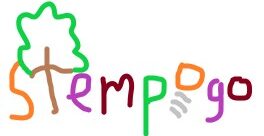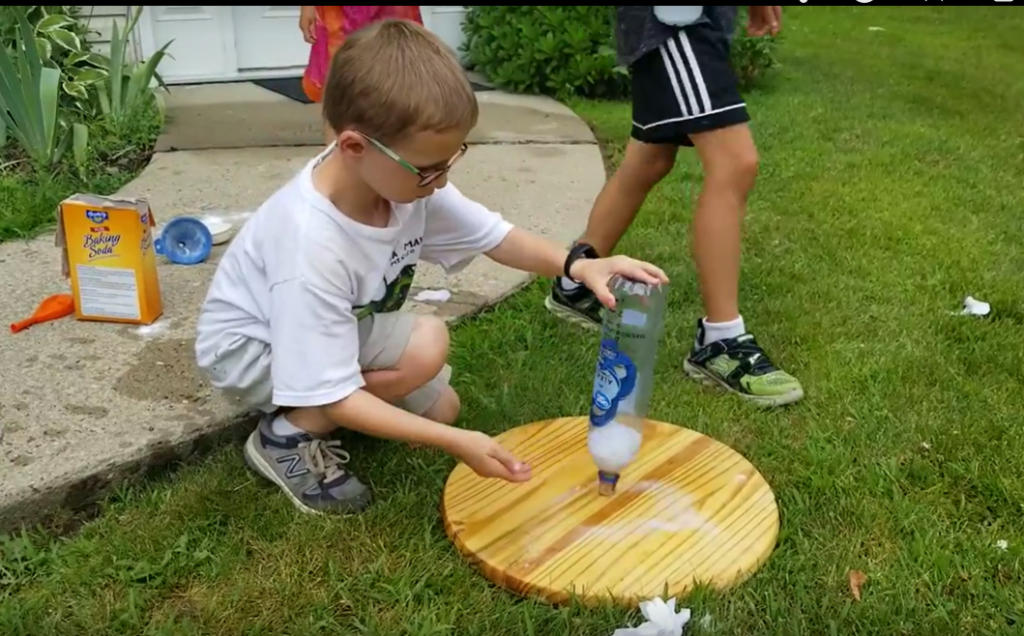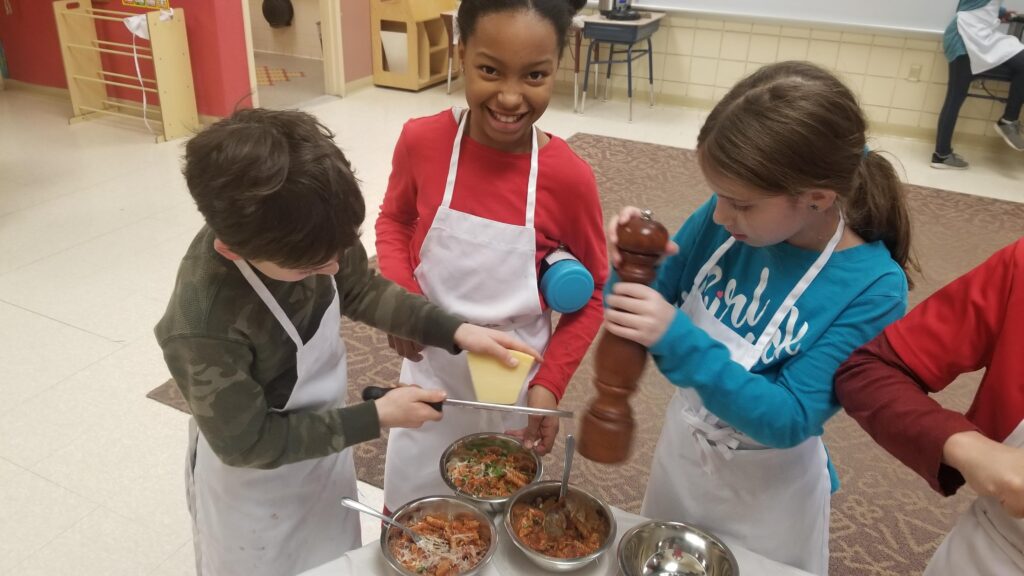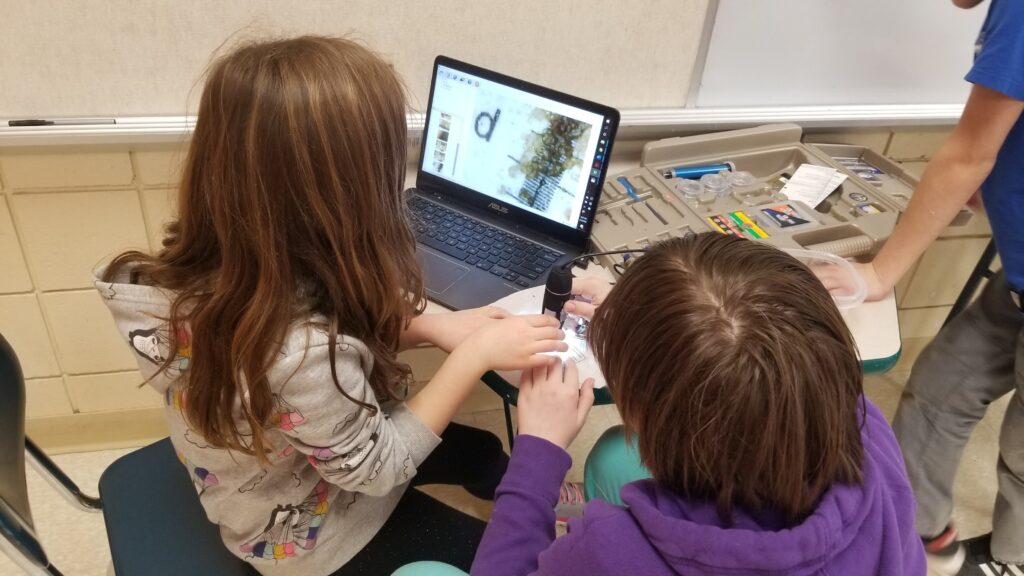Summer camp signups for 2021 are closed. Contact me for more information about other ways to explore this summer!
I’m back this summer for another edition of online camp! Kids will explore how germs help us make food, how to get energy from wind, and even how to measure the size of the Earth from your front yard. Along the way they will see how math and science can help them explore their world (though they may be having too much fun to notice). I take pride in making everything accessible to young children, and I’ve learned a lot developing and running afterschool programs for the past four years (see photos below) and from last year’s online camp. At the same time, my activities are probably very different from the math and science kids see in school, and so they should be new and interesting for all ages (even adults!)
This year the program will run in five one-week blocks, with a specific theme for each morning and afternoon. For example, week 1 mornings will be “From the Earth to the Stars” and the afternoon will be “The Chemistry of Cooking”. You can sign up for just mornings, just afternoons, or both, for just one week up to all five.
We’ll start with a 45-60 minute interactive Zoom call where I’ll introduce the concepts for the day and the kids and I will do an activity or two together. Then they’ll be provided with ideas to explore on their own for another 60-90 minutes. We’ll discuss the results of their exploration on the next day’s Zoom. All specialized materials will be provided at the start of camp, and there will be lots of opportunity for feedback from kids and adults. The Zoom call for morning programs will be at 9:15 AM ET, the afternoons will be at 1:00 PM ET. You can also sign up to participate on your own time; you will receive a video of each call and your child will still have the opportunity to share their work with Dr. Dave and receive feedback.
The cost for each program will be $125 plus $50 for each materials kit. This includes engineering project supplies for “Building a Better World”, cooking tools for “The Chemistry of Cooking”, a small programmable robot for “How Do Computers Work?”, and more. If you have multiple kids, you can decide whether to have multiple kits depending on whether they want to work together, but you only have to pay one main fee. (E.g. you sign up for an afternoon session with materials for 2 kids, it would be $125+$50+$50=$225 per week. Morning and afternoon session with 1 set of materials would be $125+$50+$125+$50=$350 per week.)
This program is run by Dr. Dave Hiller, a scientist at Yale University. I earned my BS in Chemistry at Caltech, and PhD in Biochemistry from UC – Santa Barbara. For four years, I developed and ran afterschool math programs in elementary schools in Hamden, CT. I’ve also mentored multiple classes for the New Haven Science Fair, coordinated several outreach initiatives in cooperation with Yale’s Pathways to Science program for middle- and high-school students, and run science activities at area preschools.
| WEEK | DATES | TOPIC |
|---|---|---|
| Week 1 Morning | July 5th – 9th | From the Earth to the Stars |
| Week 2 Morning | July 12th – 16th | Building a Better World |
| Week 2 Afternoon | July 12th – 16th | The Chemistry of Cooking |
| Week 3 Morning | July 19th – 23th | How Do Computers Work? |
| Week 4 Morning | July 26th – 30th | The Chemistry of Cooking |
| Week 4 Afternoon | July 26th – 30th | Building a Better World |
| Week 5 Morning | August 2nd – 6th | Making Waves in Music and Art |
| Week 5 Afternoon | August 2nd – 6th | How Do Computers Work? |
From the Earth to the Stars – How do we know how far away the stars are, or how big the Earth is? Do plants breathe like us? What makes a rocket go up? Kids will explore these questions by building, making measurements, and observing the world around them.
Building a Better World – Each day will feature a different engineering project, including a tower, catapult, wind turbine, and more. Kids will learn the cycle of design, testing, and improvement – and will see how failure is part of the learning process.
The Chemistry of Cooking – We will explore the use of microbes to make food, find out how to control the size of sugar crystals in fudge, and study the economics of lemonade stands. Along the way kids will gain confidence in their ability to cook.
Making Waves in Music and Art – What do light and sound have in common? They are both waves – vibrations that move energy from one place to another. We will see how the different colors of light combine to make a beautiful sunset, and measure the speed of light using chocolate and a microwave. We’ll visualize sound waves by making drums, and kids will have the chance to make their own musical instruments.
How Do Computers Work? – It’s hard to comprehend how electrical circuits can do math. We’ll start by exploring circuits made from dominos, and work our way up to coding in the kid-friendly language Scratch. We’ll even program a small robot!



